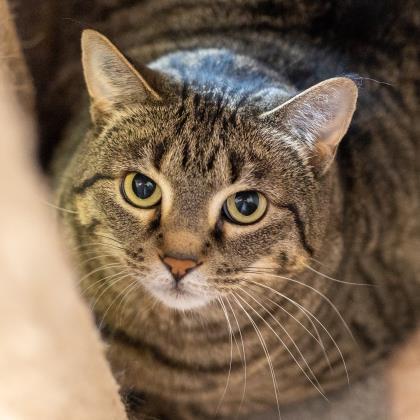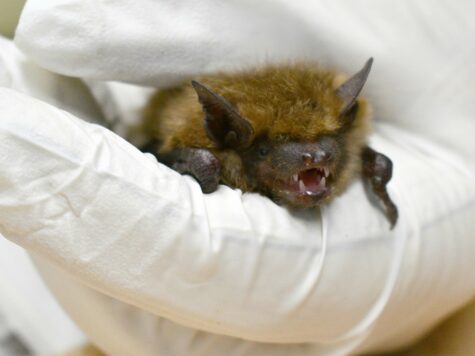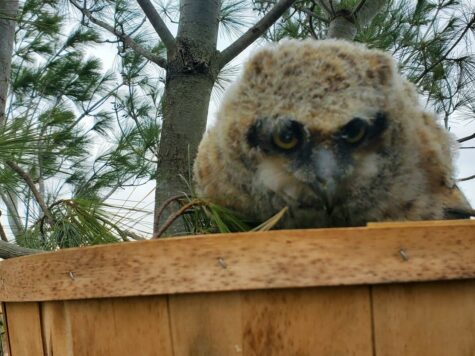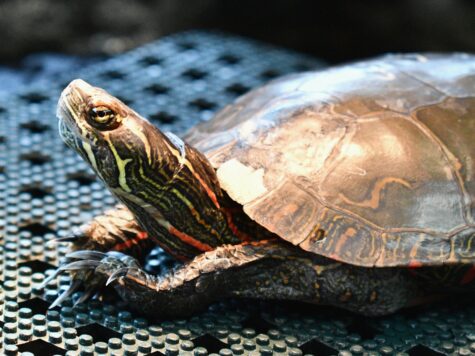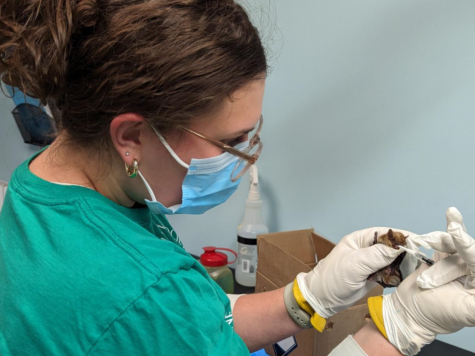June is Adopt-A-Shelter-Cat month, and Dane County Humane Society has a number of felines available for adoption. Cats provide joy, friendship and entertainment in any place they call home. Best of all, they don’t ask for much. It will be the caretaker’s job to provide food and clean the litter box, but cats are often independent creatures. Of course, your cat may also want to lay in your lap to soak up some attention, enjoy being brushed, or look to you for playtime fun.
The American Society for the Prevention of Cruelty to Animals (ASPCA) estimates 3.4 million cats live in humane societies across the country, and they are sheltered for a variety of reasons. For example, many are surrendered because a family is moving to a new residence where pets are not allowed. Children and adults may develop cat allergies that make it impossible for the animal to stay in a household.
First-time pet owners should find shelter cats an appealing choice of pet. Many are adult cats that have lived in houses, and will soon get used to your residence and the location of the food dish, litter box and best places to sleep. Dane County Humane Society keeps records on each cat’s personality and our adoption counselors work with each client to help you make the right selection for you.
Visit our adoptable animals page on the website to see who is available now. Then, read up on our current Adoption Process to learn the best way to meet with your potential matches.
For more information on adding a cat to your family, check our cat resources page.
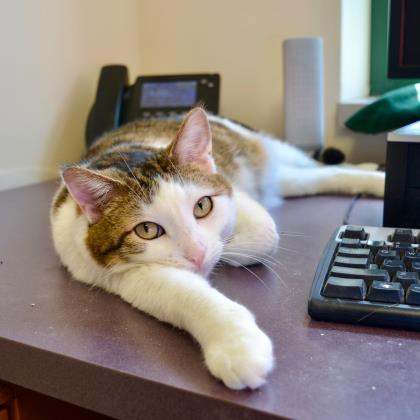
Making an adoption plan
Adopting a pet should be discussed with all people in the household first, as everyone will have to attend to its needs. If you rent, please check with your landlord on any policies concerning pets. Cats may be permitted in some rented properties, but some may prohibit them.
After you arrive at the shelter for your appointment, the adoption counselor will review the medical and behavioral history of the cat that interests you. You will be asked questions about your preferences, expectations and experience with pets to find the best match.
As the pandemic continues, we ask only two members of the household attend the appointment and that they wear a face mask and maintain social distancing in the building. If you already have a house pet, please leave it at home to assure the health and safety of the staff and sheltered animals.
You will be introduced to your pet and allowed some private time to determine if it is the right one for you. If everything goes smoothly, you might be able to take the cat home with you that day, but in some cases, the counselor may suggest the animal stay in the shelter a little while longer due to medical and behavioral concerns. If your newly-adopted cat needs to stay in the shelter, the counselor will arrange a pick-up date and time for you to come back and get it.
The cat’s medical and behavior history will be reviewed by the counselor, and you will be asked to sign some documents and pay the adoption fee. After that, you can take your new friend home! Be sure to bring a carrier for the cat to make the trip home a lot easier. The humane society will provide you with some food the cat has been eating. Collars for the cat’s identification tag and other supplies may be purchased at DCHS.
In a short time, your cat will become a well-loved member of your family. While some may like their independence, they will love being around you especially at feeding time or when it needs some attention. Adoption counselors and other personnel will be available to answer any questions you have after the cat leaves the shelter. We hope you look forward to those special, fulfilling moments with your furry new friend!
